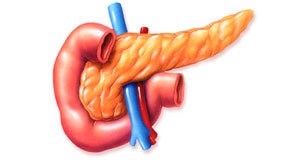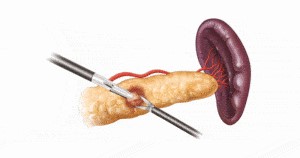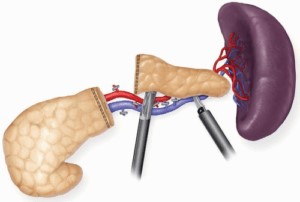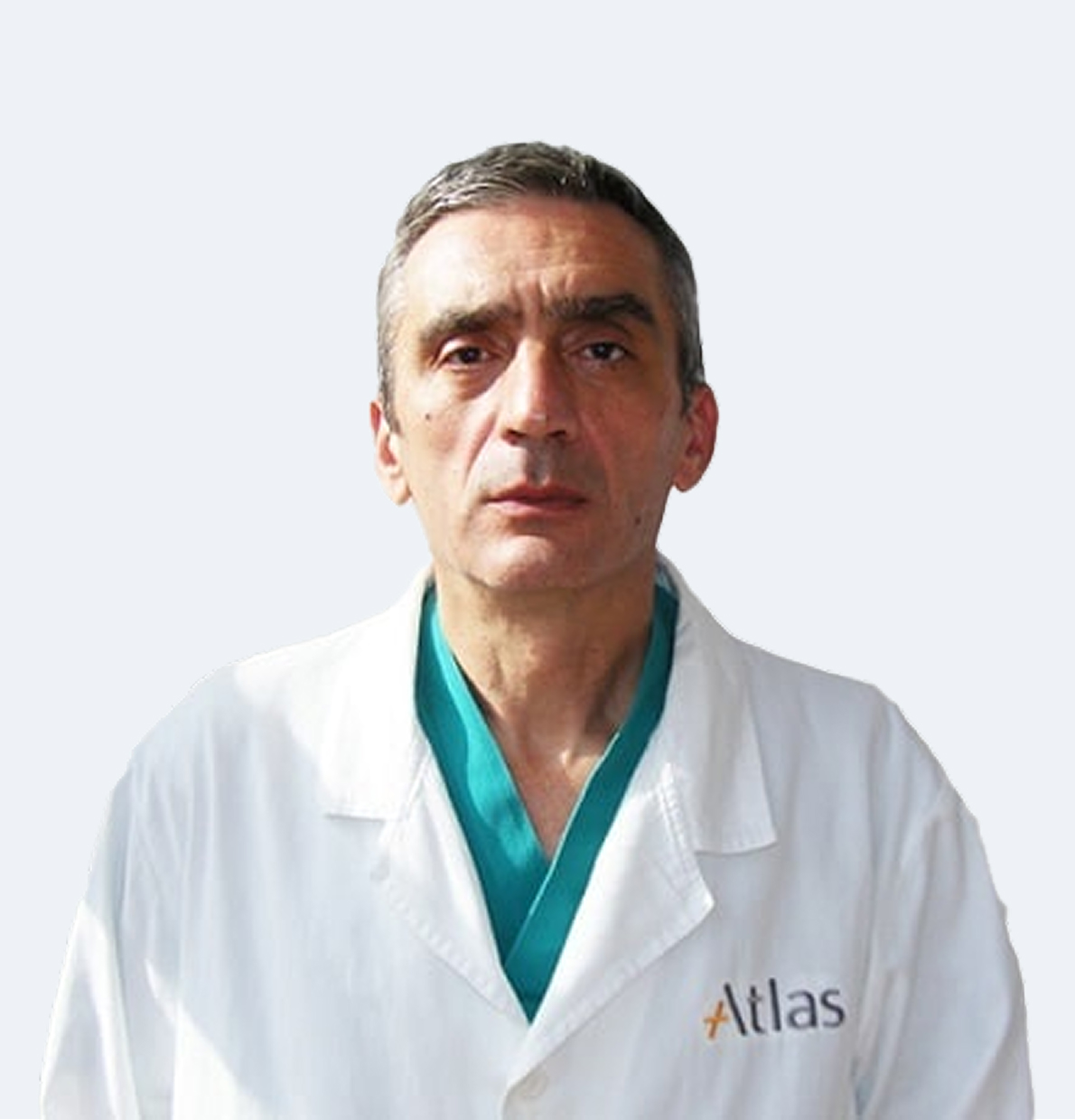What is the pancreas?
The pancreas is the gland that possesses endocrine and exocrine function. This implies that it secretes its products into the blood (endocrine function) and into the small intestine (exocrine function). It is located between the stomach, the duodenum, the colon and the spleen.
The pancreas consists of the head, body and tail. It plays a crucial role in the digestion of proteins through its exocrine function, while the endocrine cells of the pancreas secrete a number of important hormones, the most important being the insulin and glucagon that regulate blood sugar metabolism.
Due to its specific position and function, the diagnosis of pancreatic tumors is usually made either when patients have a painless yellowing (in tumors localized in the head of the pancreas) or when pain occurs in the stomach region (in tumors are localized in the body and tail of the pancreas).
What is pancreatic cancer?

According to the Institute of Public Health in Serbia, pancreatic cancer ranks seventh in terms of mortality in relation to all carcinoma. It most commonly occurs in the elderly population, over 60 years of age, although in recent years, it has been observed in people of the younger age.
The risk factors for pancreatic cancer are: dietary, hereditary, smoking, alcohol consumption, obesity and lack of physical activity. H. pylori infection favors the onset of pancreatic cancer. The oncogene mutation of KRAS and p-53 was experienced by the majority of patients (70-90%) with pancreatic cancer. Pancreatic tumors are usually localized in the head, then the body, and most rarely in the tail of this organ.
They can be divided into several categories, which include adenocarcinomas, neuroendocrine tumors (NET), mucinous cystic neoplasms, and Intraductal papillary mucinous neoplasms (IPMN).
How is a diagnosis made?
Abdominal ultrasound examination and multidetector computerized tomography (MDCT) are non-invasive diagnostic procedures used in the initial testing phase. Determination of the value of tumor markers is indispensable in diagnosis, while magnetic resonance imaging (MRI) and endoscopic ultrasonography are used in diagnostic dilemmas. Endoscopic retrograde cholangiopancreatography (ERCP) is an invasive procedure whose advantages are a clear examination of the biliary and pancreatic canalicular system, the possibility of sampling and stent placement.
After the performed diagnostic procedures, decision is made on the type of surgical treatment- whether the patient is a candidate for palliative or radical surgical procedure.
Palliative procedures can be operative as well as endoscopic and percutaneous interventions for biliary and duodenal obstruction and pain removal.
Most common reasons for pancreatic surgical interventions are:
- Acute pancreatic inflammation (acute pancreatitis)
- chronic pancreatic inflammation (chronic pancreatitis)
- cystic pancreatic changes (pseudocysts, serous, mucous cystadenoma, IPMN itd).
- pancreatic tumors (adenocarcinoma and neuroendocrine tumor)
Risk factors for creation of pancreatic tumors
Risk factors for creation of pancreatic cancer are: dietetic, hereditary, smoking, alcohol consuming, obesity, insufficient physical activity. Helicobacter pylori infection increases contribute to creation of pancreatic cancer. Mutation of oncogene K ras and p-53 had most patients (70-90%) that had pancreatic cancer. Pancreatic tumors are most often localized in the head, and in body, and rarely in tail of this organ.
Clinical signs and symptoms of diseases
Clinical signs in the beginning of disease do not have clear characteristic, dominates non specific symptomatology, also abdominal discomfort which is one of the reasons for making the right diagnosis difficult. Specific symptoms are seen in advanced phase of the illness – obstructive jaundice, pain, nausea and vomiting as a consequence of obstruction of the duodenum and bleeding from the upper parts of the digestive tract.
Pancreatic cancer has worst prognosis in all malignant diseases of digestive tract, and takes high place as cause of death in developed world.
For pictures of pancreas tumor click here
Radical surgery represent only potential treatment of curing. Palliative procedures can be operative, as well as endoscopic and percutaneous operation for biliary and duodenal obstructions and pain relief.
Pancreatic surgery – procedures
Procedures successfully performed at Atlas General Hospital by a team of general surgery specialists specializing in pancreatic surgery include: Prof.Dr. Srbislav Knezevic, Doc. dr Djordje Knezevic, Ass.Prof. Slavenko Ostojic, Ass. Prof. Borislav Tošković, Prof. Dr. Slavko Matic, Dr. Nemanja Zaric, Dr. Ilija Pejovic, Dr. Marko Bogdanovic.
- Enucleation
- Duodenum–preserving pancreatic head resection(DPPHR)
- Cephalic duodenopancreatectomy (Whipple’s procedure)
- Spleen–preserving distal pancreatectomy
- Distal / subtotal pancreatectomy and splenectomy

Cephalic duodenopancreatectomy (Whipple’s procedure)

Enucleation of pancreatic tumor

Distal pancreatectomy with splenic preservation










